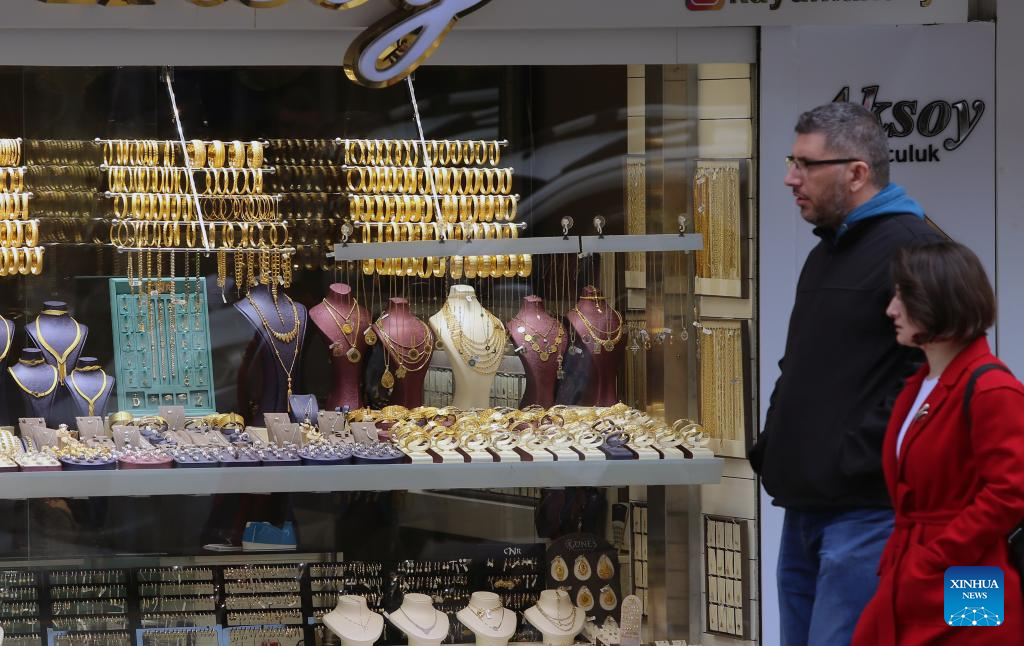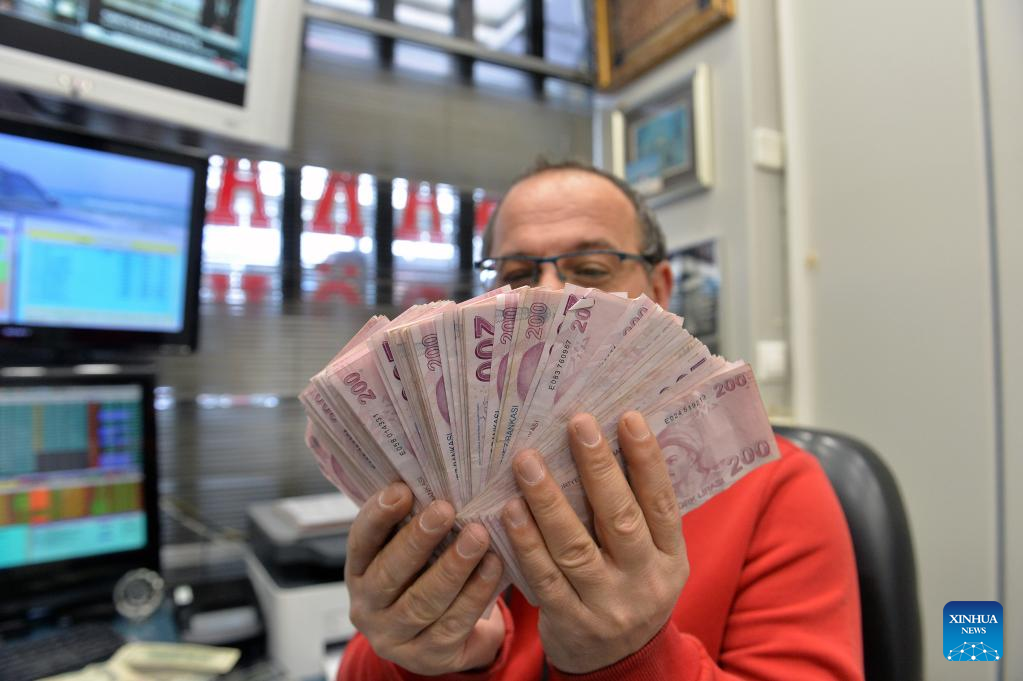
People pass by a jewelry shop in Ankara, Türkiye, April 11, 2023. (Photo by Mustafa Kaya/Xinhua)
by Burak Akinci
ANKARA, April 12 (Xinhua) -- Despite a significant drop in the Turkish inflation rate in recent months, prices remain a hot topic in the run-up to the country's general elections, as households continued to feel the bite of the high cost of living.
"Economic difficulties will be essential in my voting choices at the upcoming elections," Ramazan Erdogdu, a 73-year-old pensioner told Xinhua in Tunali Hilmi, a popular commercial avenue in Ankara.
"The price of foodstuffs is abnormally high along with clothing and other essential products," he added.
Türkiye has been grappling with both economic woes and the aftermath of devastating earthquakes that claimed over 50,000 lives in early February.
Incumbent President Recep Tayyip Erdogan is seeking a new term of five years against his main rival Kemal Kilicdaroglu, head of the Republican People's Party, who runs as presidential candidate for an alliance of opposition parties.
The presidential and parliamentary elections are scheduled on May 14. If no candidate secures more than 50 percent of the votes in the first round of the presidential vote, a second round will be held on May 28.
According to recent opinion polls, it is going to be a neck-and-neck race between the two predominant candidates who have both promised better living quality and social standards for millions of households battered by runaway inflation.
Turkish annual consumer prices index (CPI) dropped for five consecutive months to 50.51 percent in March from 85 percent in October, official data showed on April 3.
However, prices are still increasing on a monthly basis, with the monthly CPI rising by 2.29 percent in March, Turkish Statistical Institute said.
More than 40 percent of Türkiye's workforce earns the minimum wage, which was increased for a third time by the government last year at 8,500 Turkish liras (about 441 U.S. dollars) due to the loss in value of the lira.
Ilhan Akay, a passerby at Tunali Hilmi street who introduced himself to Xinhua as a bread earner for a family of five, said that high prices will inevitably be a factor in his preferences during the elections.
"I am a father of three, two of whom go to school... I work day and night but still, I cannot meet my family's needs," said Akay, who works for a cleaning company.
According to analysts, pre-election government spending and currency pressures may lead inflation back to an upward trend.
Enver Erkan, the chief economist at Istanbul's Dinamik Investment Securities, said that the drop in inflation will stop in the second half of the year.
"Inflation pressure will be high within the framework of a possible rise in the exchange rate (of the dollar/lira pair) and the government's pre-election revitalization plans," he told Xinhua.
The lira has lost over 70 percent of its value against the greenback since the beginning of 2022. It has declined further to new record lows against the dollar since the start of March.
One of the main consequences of this devaluation is inflation as Türkiye is a big importer of energy and other commodities.
Erdogan has increased wages and pensions, slashed energy bills, and allowed some two million workers to retire with immediate effect.
Despite criticism of its economic policies, the president has still significant backing amongst voters who believe he is the best person to lead Türkiye.
"He has done so much in the past years to fight poverty with social services, his re-election is in the Turkish people's interest," Abdurrahman Delice, a grocery shop owner in Ankara's commercial center Kizilay, told Xinhua.
According to Delice, the current economic woes will pass. "The most important thing is the unity of our country," he added. ■

A teller shows Turkish lira banknotes at an exchange office in Ankara, Türkiye, April 11, 2023. (Photo by Mustafa Kaya/Xinhua)



